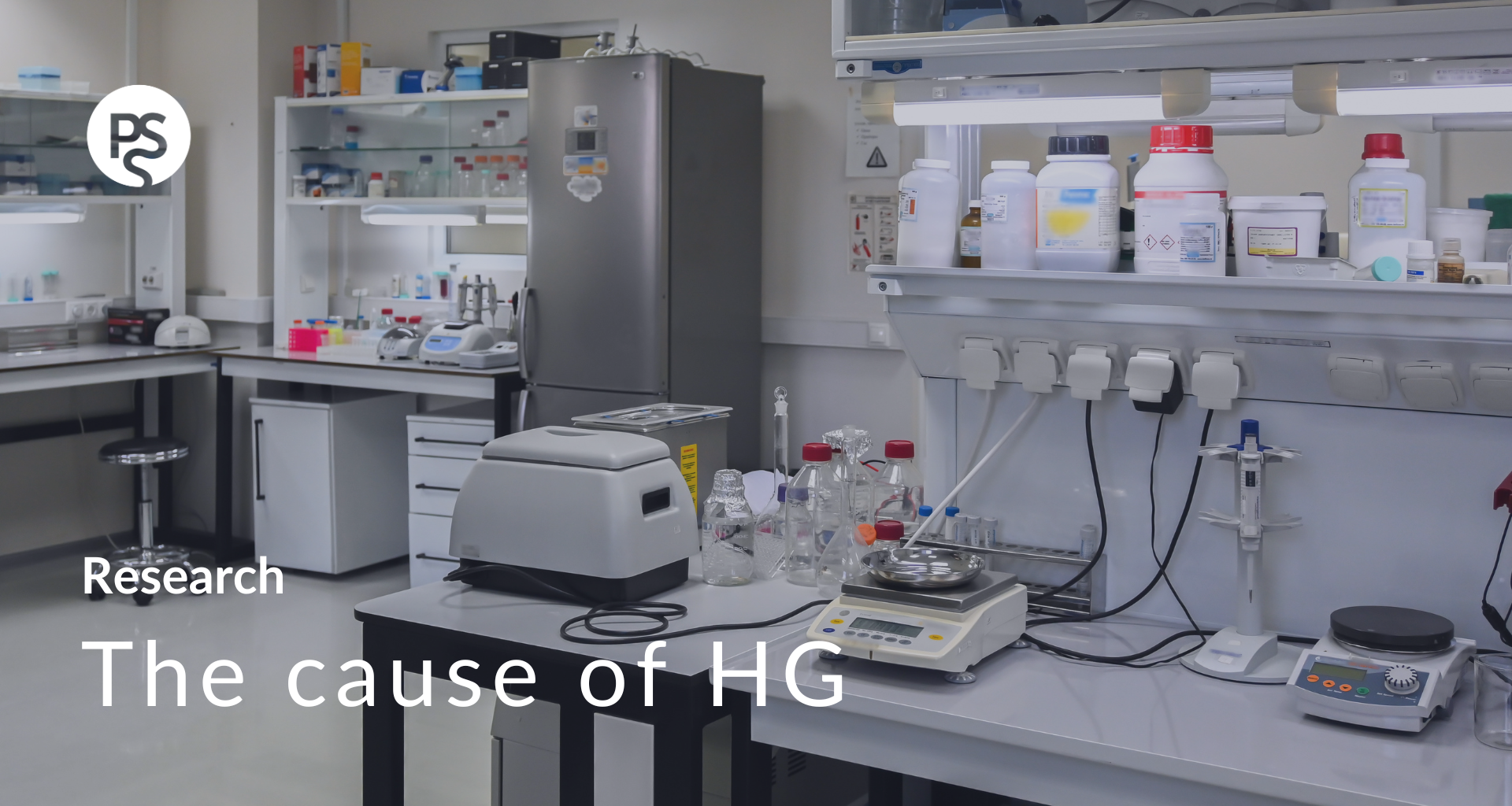A new study led by a team at the University of Southern California offers further confirmation that abnormalities in the GDF15 gene contribute to the development of hyperemesis gravidarum and may provide insight into prediction and diagnosis of the condition.
Up to 94% of women and pregnant people will suffer with a degree of nausea and/or vomiting in pregnancy, but a condition known as hyperemesis gravidarum (HG), which affects up to 2% of pregnancies, causes nausea and/or vomiting so severe that it can lead to dehydration, nutrient deficiency, and problems with fetal development. HG has a long history of being misunderstood and consequently misdiagnosed and undertreated, putting people with the condition at an increased risk of terminating a wanted pregnancy, suicidal ideation and even death.
HG can be hereditary, passing the condition down through generations, and most people who experience it in one pregnancy will have it again in subsequent pregnancies. This can lead to people not wanting to have any more children, develop a fear of sex, and readjust their family expectations, which is emotionally challenging.
As Zara Abrams identifies in their article, a new study from a team of researchers at the Keck School of Medicine of USC and the Hyperemesis Education and Research (HER) Foundation has found that mutations or variants in the GDF15 gene are linked to HG. The findings published this week in BJOG: An International Journal of Obstetrics and Gynaecology, confirm earlier research linking the GDF15 gene to HG and may provide tools for predicting who might be at risk for HG and diagnosing the disease.
These findings align with Pregnancy Sickness Support’s aims to improve the care and treatment of those suffering with HG. We hope that healthcare professionals will ultimately be able to provide a quicker diagnosis, and even predict those who could potentially have the condition, possibly through genetic testing. Pregnancy Sickness Support is the only charity in the UK providing information and support to those who have nausea and vomiting in pregnancy (NVP) and HG. Chairperson, Dr Caitlin Dean says “This is a very exciting development for the millions of people whose lives are affected by the horrific condition hyperemesis gravidarum. By understanding what causes the condition we edge closer to a cure, rather than the current ineffective treatments we have which only serve to mask the symptoms a bit. Knowing there is a biological reason for their suffering is also extremely validating for people who are frequently dismissed when asking for help.”
The papers’ lead author and faculty researcher at the Keck School of Medicine, Marlena Fejzo, PhD, says “For generations it’s been thought that HG was either psychological in nature or caused by hCG pregnancy hormone, so this breakthrough leads us in a new direction. Our study provides compelling evidence that abnormalities in the GDF15 gene and the protein it codes for are the main cause of HG.”
Co-author and associate professor of clinical obstetrics and gynaecology at the Keck School of Medicine, Patrick M. Mullin, MD, MPH added “Our hope is that understanding the genetic basis of HG will support the development of more targeted approached to treatment.”
The genetic basis of HG
The researchers compared the genes of 926 women with HG pregnancies to 660 women who had normal levels of nausea and vomiting while pregnant. Only one gene differed significantly between the two groups: the gene that codes for a cellular stress hormone called GDF15. The hormone, which is present at high levels in the placenta, sends signals to a part of the brain that controls nausea and appetite. The results suggest that in women with certain variants of the identified gene, something is going awry with how the GDF15 hormone signals the brain, leading to the symptoms of HG.
In previous research, the team found a link between the GDF15 gene and HG in a genome-wide association study. The BJOG finding builds on that breakthrough by confirming the link in a separate group of participants using whole-exome sequencing, a different genetic analysis technique that allows researchers to sequence large amounts of DNA to search for rare mutations in genes. In this study researchers found two variations of the GDF15 gene associated with HG. One common variation occurred in many more women with HG pregnancies than controls, while a second rare mutation occurred in 10 women with HG pregnancies but none of those without HG, strongly suggesting that abnormalities in the GDF15 gene play a role in the development of HG.
The new study also included a more diverse participant pool, showing a similar trend toward an association of the common GDF15 gene variant and HG in people of African, Asian, and Hispanic descent, suggesting that the results may be generalizable to the larger population.
In addition to its role in HG, the GDF15 hormone is implicated in cancer cachexia, a wasting syndrome that causes weight loss, malnutrition, and loss of appetite. Clinical trials are currently underway for cachexia drugs that block the GDF15 signalling pathway, which show promise for reducing nausea and weight loss. Those medications may ultimately prove useful for HG patients, too.
“Providing clinicians and patients with an evidence-based cause of HG may lessen the historical stigma and allow patients to be taken more seriously, resulting in improved care and healthier mothers and babies,” Fejzo said.
Improving maternal and foetal health
During pregnancy, when weight gain is key to foetal health, people with HG typically lose at least 5% of their body weight. Some face prolonged starvation and become nutrient deficient, with the most severe cases leading to life-threatening conditions, including Wernicke’s encephalopathy.
But the condition doesn’t just harm those pregnant. Infants born to people with HG are five times more likely to be small for their gestational age compared to infants of healthy pregnant people—a higher risk than that of tobacco, cocaine, or amphetamine use. Babies exposed to HG also face more developmental problems, including a higher risk for autism, than their healthy counterparts.
“HG patients and their babies can suffer greatly, can even die, and this study provides long overdue progress toward understanding the disease,” Fejzo said.
Next, the team aims to further elucidate the link between GDF15 and HG using clinical and biological data, for example to determine whether levels of the GDF15 hormone can predict the onset of HG. They are currently measuring GDF15 hormone levels in blood samples from women with and without HG and comparing that data to clinical reports of nausea and vomiting severity.
About this study
In addition to Fejzo and Mullin, the study’s other authors are Kimber W. MacGibbon, Olivia First, and Courtney Quan, of the HER Foundation. This work was supported, in part, by the HER Foundation and the Eppley Foundation for Research. Regeneron Genetics Center performed whole-exome sequencing for the study.
Disclosure: Fejzo is a paid consultant for Materna Biosciences, Inc, which is developing a treatment for HG. Materna Biosciences, Inc may potentially benefit from the outcome of this research.




